#villemorte
Explore tagged Tumblr posts
Text
ONLY FANZINE FESTIVAL LYON
3 notes
·
View notes
Text
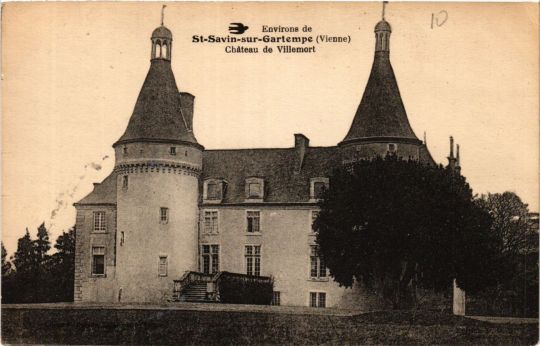
13-15th century Château de Villemort in the Poitou region of central France
French vintage postcard
#13-15th century#historic#chteau#photo#briefkaart#vintage#villemort#region#th#sepia#poitou#photography#carte postale#central#postcard#postkarte#france#postal#tarjeta#ansichtskarte#french#old#château de villemort#ephemera#de#postkaart#century
6 notes
·
View notes
Text
Les Demoiselles

From Légendes rustiques, illustrated by Maurice Sand, written by George Sand, 1858
Original French at Project Gutenberg
J'en viyons une, j'en viyons deux,
Que n'aviant ni bouches ni z'yeux;
J'en viyons trois, j'en viyons quatre,
Je les ârions bien voulu battre.
J'en viyons cinq, j'en viyons six
Qui n'aviant pas les reins bourdis
Darrier s'en venait la septième,
J'avons jamais vu la huitième.
Ancien couplet recueilli par Maurice SAND.
We saw one, we saw two,
They had neither mouth nor eyes;
We saw three, we saw four,
I would have liked to beat them.
We saw five, we saw six
Tired from leaping,
The seventh came up from behind,
We have never seen the eighth.
Old couplet collected by Maurice SAND
English translation:
The Demoiselles of Berry seem to be cousins of the Milloraines of Normandy, whom the author of “Normandie merveilleuse” (Marvellous Normandy) describes as gigantically tall beings. They stand still, and their shape, too indistinct, allows nothing recognizable as limbs or faces. When one approaches them, they flee in a series of leaps, uneven and quick.
The demoiselles, or “pale girls” are everywhere. I do not believe they are of Gallic origin, but rather French, from the Middle Ages. Whatever the case may be, I shall report one of the most complete legends of them that I have been able to collect.
In the last century, a gentleman from Berry named Jean de la Selle lived in a castle deep in the woods of Villemort. The country, sad and wild, becomes a little livelier at the edge of the forest, where the ground, dry and flat and planted with oaks, slopes down to the meadows; these are flooded by a series of small ponds which are nowadays rather badly maintained.
At the time of our tale, water already filled the meadows of M. de la Selle, the good gentleman not having much money with which to clean up his land. He had a fairly large area, but of poor quality and little yield.
Nevertheless, he lived happily, thanks to his modest tastes and wise and cheerful character. His neighbours sought him out for his good humour, great sense, and patience in the hunt. The peasants of his estate and the surrounding lands considered him a man of extraordinary kindness and rare delicacy. It was said that rather than do the slightest harm to a neighbour, whomever he was, M. de la Selle would rather have the shirt torn off his back and his horse snatched from between his legs.
It just so happened that one evening, M. de la Selle, having gone to the Berthenoux Fair to sell a pair of oxen, was coming back along the edge of the woods, escorted by his tenant farmer, the great Luneau - a fine man with a knowing air - and he was carrying, on the thin backside of his grey mare, a sum of six hundred livres in large, flat bills bearing the likeness of Louis XIV. This was the price of the cattle sold.
Being the good country gentleman that he was, M. de la Selle had dined beneath the leafy boughs of the trees, and, as he did not like to drink alone, he made the great Luneau sit before him, and poured himself the vintage wine unsparingly in order to set an example and to put Luneau at ease. He poured so much that the wine, the heat, the day’s fatigue, and, above all, the rhythmic trot of his grey mare put M. de la Selle to sleep atop his horse, and he arrived home without really knowing how long it had been or which way they had gone. It had been Luneau's job to lead them, and Luneau had led them well, for they arrived safe and sound; not a hair on their horses was wet. M. de la Salle was not quite drunk. In his life, he had never been seen out of his senses. As soon as he arrived, he told his valet to take the valise of money to his room. He then had a very reasonable conversation with the great Luneau, bid him goodnight, and went to sleep without even looking for his bed. But the next day, as soon as he opened his valise to take out his money, he found nothing but large stones, and, after searching in vain, was forced to admit that it had been stolen.
The great Luneau, sent for and consulted, swore upon his chrism and his baptism, that he had seen the money well-counted and placed into the valise, which he had loaded and secured himself on the mare’s backside. He also swore on his faith and his law that he had not gone the length of a horse away from his master all the time they had been on the main road. But he confessed that once they had entered the forest, he had felt a little sluggish, and had been able to sleep atop his beast for about a quarter of an hour. He had found himself all of a sudden near the Gâgne-aux-Demoiselles, and, from that moment on, had not slept or seen another Christian soul.
“Come now,” said M. de la Selle, “some thief will be laughing at us. It is more my fault than yours, my poor Luneau, though neither of us has anything to brag about. I am the only one who suffers, since you did not share in the sale of the cattle; I can bear the brunt of this, even if the whole thing bothers me. That will teach me not to fall asleep on horseback again!”
Luneau tried in vain to cast his suspicions off onto some poachers active in the area.
“No, no,” said the kind country gentleman, “I do not want to accuse anybody. All the people of that area are honest. Let's not talk about it anymore; I've gotten what I deserve.”
“But perhaps you are rather angry with me, Master��”
“For having slept? No, my friend; if I had entrusted the valise to you, I am sure you would have stayed awake. I have only myself to blame, and well, I don’t intend to punish myself too hard. It's bad enough to have lost the money, let us save our good mood and appetite.”
“If you trust me, though, Master, you would have the Gâgne-aux-Demoiselles searched.”
“The Gâgne-aux-Demoiselles is a grassy pit half a league long; it would be no small project to stir up all that mud, and besides, what would we find? My thief will not have been so stupid as to sow my money there!”
“Say what you like, Master, but perhaps the thief is not what you think!”
“Ah! Ah! My dear Luneau, you too believe that the demoiselles are malicious spirits who enjoy playing evil tricks!”
“I don't know about that, Master, but I do know that, being there one morning with my father, before daylight, we saw them as I see you now; and that, returning home quite frightened, we had neither hats nor caps on our heads, nor shoes on our feet, nor knives in our pockets. Come now, they are clever! They seem to run away, but, without touching you, they take all that they can and must use it, for it is never found. If I were you, I would have the whole swamp drained. Your meadow would be better off, and the demoiselles would soon be flushed out; for every man of good sense knows they do not like dry land, and that they fly from pool to pool, from pond to pond, as the fog on which they feed fades away.”
“Luneau, my friend,” responded M. de la Selle, “draining the swamp would certainly be good for the meadow. But besides the fact that it would take the six hundred livres I lost, I would still think twice before dislodging the demoiselles. It's not that I believe in them, exactly, having never seen them, nor any farfadet or creature of the sort; but my father believed in them a little, and my grandmother absolutely did. When we spoke of them, my father would say, ‘Leave the demoiselles alone; they have never done harm to myself or anyone else,’ and my grandmother would say, ‘Never torment or ward off the demoiselles; their presence good for the land, and their protection brings good luck to a family.’”
“Nevertheless,” said the great Luneau, “they have not saved you from thieves!”
About ten years after this adventure, M. de la Selle was returning from the same Berthenoux Fair, bringing back on the same grey mare - now very old, but still trotting without a stumble - an equivalent sum to that which had been so oddly stolen from him. This time, he was alone, the great Luneau having died some months ago; and our gentleman did not sleep on horseback, having forsworn once and for all that unfortunate habit.
Once he was at the edge of the woods, along the Gâgne-aux-Demoiselles, which is situated at the top of a rather high bank and covered in bushes, old trees, and tall, wild grass, M. de la Selle was taken with sadness in remembering his poor tenant farmer, whose absence he felt keenly, though the man’s son, Jacques, tall and slim like his father, and like his father fine and sensible, seemed to be doing all he could to replace him. But one does not replace old friends, and M. de la Selle was himself getting old. He had dark thoughts; but his good conscience soon dispelled them, and he began to whistle a hunting tune, telling himself that, when it came to his life and death, all would be as God wanted.
When he was about halfway across the marsh, he was surprised to see a white shape, which he had until then taken for a wisp of those vapours which hang over still waters, move around and then leap up and fly away, tearing through the branches. A second, more solid shape came out of the reeds and followed the first, stretching out like a floating web; then a third, then another and another; and, as they passed in front of Monsieur de la Selle, they evidently became the enormous figures they really were - pale, dressed in long skirts, with whitish hair dragging rather than fluttering behind them - that he could not but know these were the phantoms about which he had been told in his childhood. Then, forgetting that his grandmother had warned him to pretend he did not see them, he began to greet them like the well-bred man he was. He greeted them all, and when it came to the seventh, who was the tallest and most solid, he couldn't help saying, “My lady, I am your servant.”
The words had not quite left his mouth when the tall demoiselle appeared in the saddle behind him, embracing him with arms as cold as dawn, and the old grey mare, terrified, took off galloping, carrying M. de la Selle through the swamp.
Although greatly surprised, the good gentleman did not yet lose his head. “By the soul of my father,” he thought, “I have never done any harm, and no spirit can do any unto me.” He supported his mount and forced her out of the mud in which she was struggling, while the grand’demoiselle seemed to try to hold her back and grind her in the marsh.
M. de la Selle had pistols in his holsters, and it occurred to him to use them; but, considering that he was dealing with a supernatural being, and remembering, too, that his parents had cautioned him not to offend the demoiselles of the water, he simply said, “Really, my lady, you must let me go on my way, for I have not crossed your path to upset you; if I have greeted you, it is out of politeness, not mockery. If you wish for prayers or masses, make your desire known, and, on the faith of a gentleman, you shall have them!”
Then, M. de la Selle heard, above his head, a strange voice saying: “Say three masses for the soul of the great Luneau and go in peace!”
Immediately the phantom figure vanished, the grey mare became docile again, and M. de la Selle returned home unimpeded.
He thought then that he had had a vision; nevertheless, he had the three masses said in Luneau’s honour. But how great was his surprise when he opened his valise and found, in addition to the money he had received at the fair, six hundred livres in flat bills, bearing the likeness of the late king!
It was often said that the great Luneau, repentant in his last hours, had entrusted Jacques with the restitution of the money he had stolen, and that Jacques, so as not to sully the memory of his father, had made the demoiselles seem responsible for it… M. de la Selle never allowed a word against the integrity of the deceased, and when one spoke disrespectfully of the matter in his presence, he was bound to say: “Man cannot explain everything. It is better for us to believe than to reproach.”
George SAND
#légendes rustiques#george sand#maurice sand#les laveuses de nuit#french literature#in translation#folklore#rustic legends#les desmoiselles#two of twelve#spooky#october
4 notes
·
View notes
Text
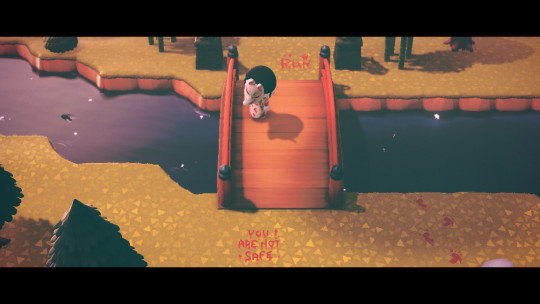
island name: villemorte
representative: Suzu
local fruit: peaches
#animal crosing new horizons#animal crossing#halloween#acnh custom design#acnh#acnh screenshots#acnh scenery
4 notes
·
View notes
Text

FR: Un dessin d'un personnage du livre Ready (son nom est Cassandre) que j'ai fait en style Puyo. Je l'ai fait pour le Drawpile d'avril.
EN: A drawing of a character from the Ready book (her name is Cassandre) I made in the Puyo style. I did this for the April Drawpile.
Je parle du 1er livre sous le cut/I'm rambling about the book under the cut:
FR: Alors, le 1er livre nous met sous la peau de Cassandre (celle en haut) qui vient de sortir du cinéma de Villemort avec son "petit copain" Elijah (entre griffes car en vrai leur relation ne marche pas vraiment). Le père de Cassandre arrive en voiture, propose à Eli de monter vu qu'il se fait tard et c'est là que les choix commencent à différer. Dans ce livre-jeu, il y a pas mal de fins game-over, bien sûr, mais il y a aussi quelques fins plutôt bonnes et quelques épilogues, en plus de l'intrigue qui est très intéressante.
En bref, c'est une bonne lecture, je vous le conseille vivement.
EN: So, the 1st book puts us in the role of Cassandre (the one up there) who just got out of Deadtown's theaters along with her "boyfriend" Elijah (under quotes 'cause their relation isn't exaclty working out). Cassandre's father arrives with his car, suggests Eli to hop in since it'ss getting late and that's when choices start to differ. There are quite a few game over ends, obviously, but there are also some rather good ends and a few epilogues, on top of the intrigue being very interesting.
It unfortunately doesn't seem to have an English translation as far as I know, maybe I'll work on that (that's a BIG maybe though). But it's an awesome read, and I really recommend it.
1 note
·
View note
Text
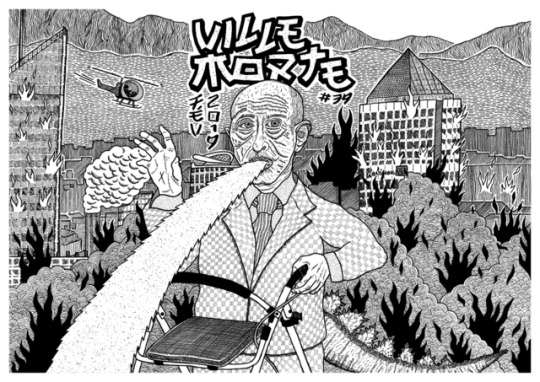
Low-res pic of a little drawing for the February issue of Ville Morte. If you ever visit Lyon and you wanna know about shows and events, that's yer best move (provided this old dude didn't destroyed everything...).
4 notes
·
View notes
Text
#PoliticoCD. | Occupation of Bunagana: Students in South Kivu are mobilizing for strict respect for the ville-morte day
#PoliticoCD. | Occupation of Bunagana: Students in South Kivu are mobilizing for strict respect for the ville-morte day
Following the growing insecurity in the province of North Kivu where the M23 rebels are occupying the border town of Bunagana, the coordination of students in the province of South Kivu, through a press release made public today, calls its members to scrupulously respect the decision of the living forces which have decreed a dead city day since Tuesday, September 27. “The Provincial Coordination…
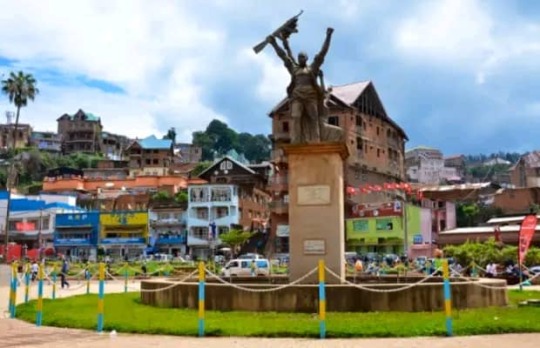
View On WordPress
0 notes
Photo
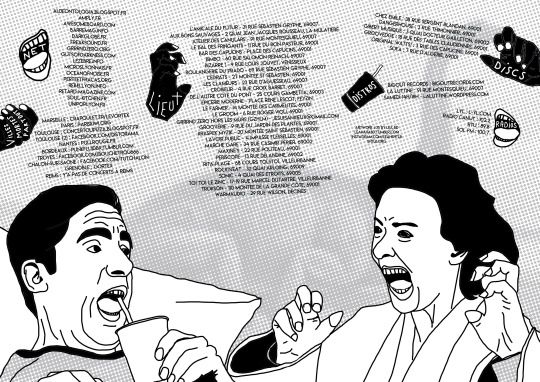
Ville Morte, édition #35 - verso
2 notes
·
View notes
Photo
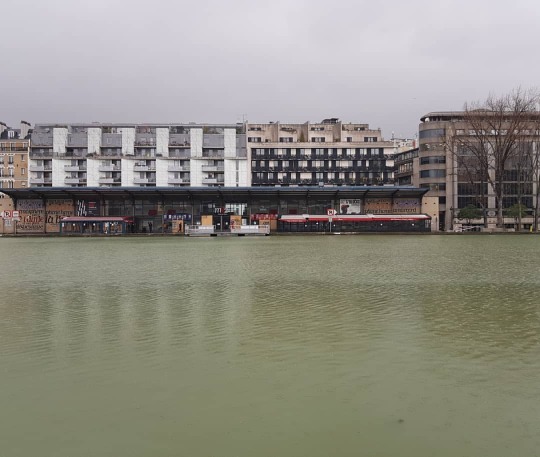
#radioparis #paris #couvrefeu #villemorte #canaldelourcq #voltaire #nation #apremapero #labamboche #resistances #photographie #photo #photography #frenchphotographer #frenchphotographe #poesie https://www.instagram.com/p/CLdzqefJMiR/?igshid=mr2qa7bxstrp
#radioparis#paris#couvrefeu#villemorte#canaldelourcq#voltaire#nation#apremapero#labamboche#resistances#photographie#photo#photography#frenchphotographer#frenchphotographe#poesie
0 notes
Text
La ville morte - épisode 13 / la fin du monde
La ville morte a connu la frénésie du grand départ pré-confinement une nouvelle fois. Des kilomètres de bouchon le long des deux rives ont créé une panique de klaxons et de cris. Deux personnes, casques sur la tête ont couru sur un boulevard entier après un potentiel voleur. Les intersections étaient bouchées par des voitures optimistes qui pensaient "c'est vert je traverse je m'en fous".
On a acheté des chips et on s'est doucement demandé à quoi allait ressembler cette deuxième fin du monde. Sous l'appartement, le café a une nouvelle fois baissé le rideau de fer. Pas complètement. Juste au trois-quart, de sorte que le gérant sort et entre en se tortillant un peu. Dans le square en bas, on boit des cafés dans des verres en plastique en guettant les derniers rayons de soleil de novembre. C'est plutôt rassurant, cette demi-présence. Juste quelques personnes qui boivent un café dehors. Je me rassurais ainsi, lorsque j'ai croisé une femme dire de manière extatique dans son kit main libre
"Au moins, on est débarrassé des blédards du bout de la rue."
Je ne l'ai pas poursuivie, je ne lui ai pas hurlé dessus. Au milieu du square, je suis restée les bras ballants, comme on se retrouve souvent face à des manifestations si directes de racisme. J'ai regardé ses cheveux lisses calés derrière ses oreilles. Petite taille, sac à dos. Ongles peints, démarche assurée. Un joli portrait de "Mme tout le monde" comme "Mme tout le monde veut voir les nord-africains retourner dans leur pays la nordafrique".
Je n'ai rien de commun avec les hommes du café. Je ne suis pas un homme de quarante ans. Si j'en crois le peu de conversation que j'ai entendu / comprise, contrairement à la plupart, je n'ai pas d'entreprises dans le bâtiment. Rien en commun donc.
Enfants, on se moquait toujours un peu des blédards. C'étaient ceux qui arrivaient en cinquième en parlant un français cassé, qui prenaient des cours de FLE (français langue étrangère), et qui ne savaient pas nager (moi non plus par ailleurs, mais c'était différent).
On était aussi impressionné. Un blédard avait vécu dans un autre pays, savait parler plusieurs langues, contrairement à nous, et se moquait allègrement de nos prononciations. On sait que nos parents, nos oncles, nos grands-parents ont tous été des blédard⋅e⋅s. Leurs manies, leur accent, leur remarque nous le rappelle. Alors on dit blédard avec amour et taquinerie.
"Tu sais, on garde la maison au pays aussi parce que, si ça tourne mal en France, avec l'extrême-droite, on a un endroit où aller."
En entendant la tirade raciste de Mme tout le monde, j'ai pensé à cette maison quelque part. La maison qui nous attend, si la fin du monde nous engouffre.
villemorte
0 notes
Photo

Ambiance #villemorte (Drc-Kinshasa): En #famille avec Gougous et Kids Être ensemble, c'est maintenant WWW.KINAMBIANCE.NET (à Kinshasa)
0 notes
Text
Les talons rouges
Une famille de vampires se divise au moment de la Révolution française. Un roman "fantastique"
Voici trois bonnes raisons de lire ce livre: 1. Parce que, pour ses débuts dans le roman, l’historien et essayiste Antoine de Baecque ne craint pas de s’engager sur les chemins du fantastique en mettant en scène une famille de vampires pris dans les tourmentes de la Révolution française.
2. Parce que la galerie de personnages qu’il nus propose au sein de la famille Villemort lui permet de…
View On WordPress
#1789#Aristocratie#Esclavage#Etats-Unis#Famille#noblesse#peuple#privilèges#révolution française#sang impur#vampire
0 notes
Text
«Les talons rouges» Antoine de Baecque
«Les talons rouges» Antoine de Baecque
https://www.amazon.fr/gp/product/2234078873/ref=as_li_qf_sp_asin_il_tl?ie=UTF8&tag=ym0e-21&camp=1642&creative=6746&linkCode=as2&creativeASIN=2234078873&linkId=579595e5aceaa94117f7700aabd9f3cd
Juin 1789, l’Ancien Monde bascule.
Les Villemort forment une longue lignée d’aristocrates, un clan soudé par l’idée ancestrale de leur sang pur, un sang dont précisément cette famille se délecte.
Les…
View On WordPress
0 notes
Text
Zone Franche Urbaine à Toulon : un succès!
À quoi sert une Z.F.U ?
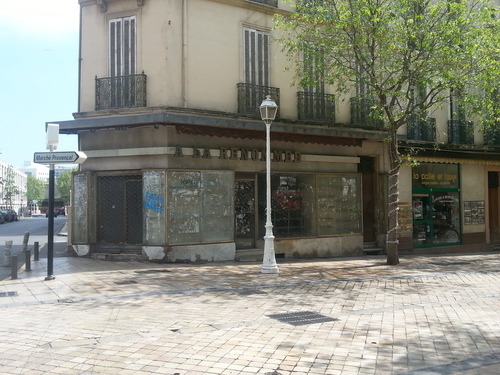
La Z.F.U
e commerces et de petites entreprises dans les quartiers classés en zones sensibles en leur octroyant des avantages sociaux et fiscaux avec des contreparties en matière d’embauche.
Pour les entreprises nouvelles, ou les emplois nouvellement créés par les entreprises existantes à la date de création de la zone franche, un tiers des emplois, à partir de la 3eembauche, doit être réservé à des habitants des quartiers de l’agglomération toulonnaise classés en zones urbaines sensibles.
Pour leur part, les entreprises existantes qui conservent leur effectif en l’état pendant les 5 ans qui suivent la création de la Zone Franche, bénéficient des exonérations patronales sans se voir appliquer cette clause d’embauche.
http://toulon.fr/entrepreneur/proxy/zone-franche-urbaine
Il existe un max d'opportunités....
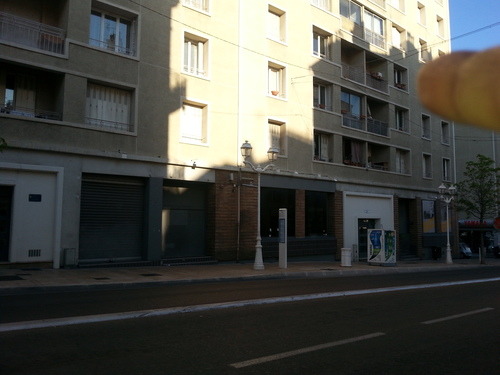
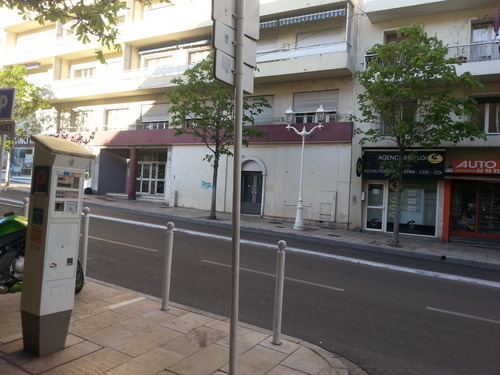


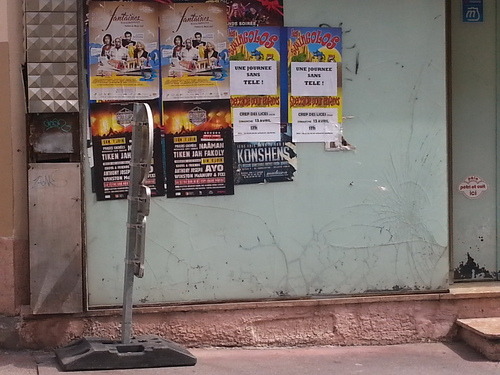
1 note
·
View note
Photo
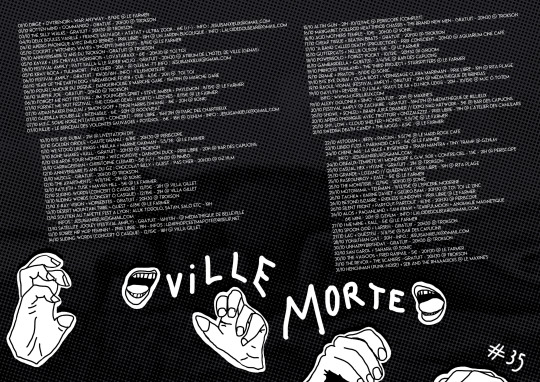
Ville Morte, édition #35 - recto
1 note
·
View note